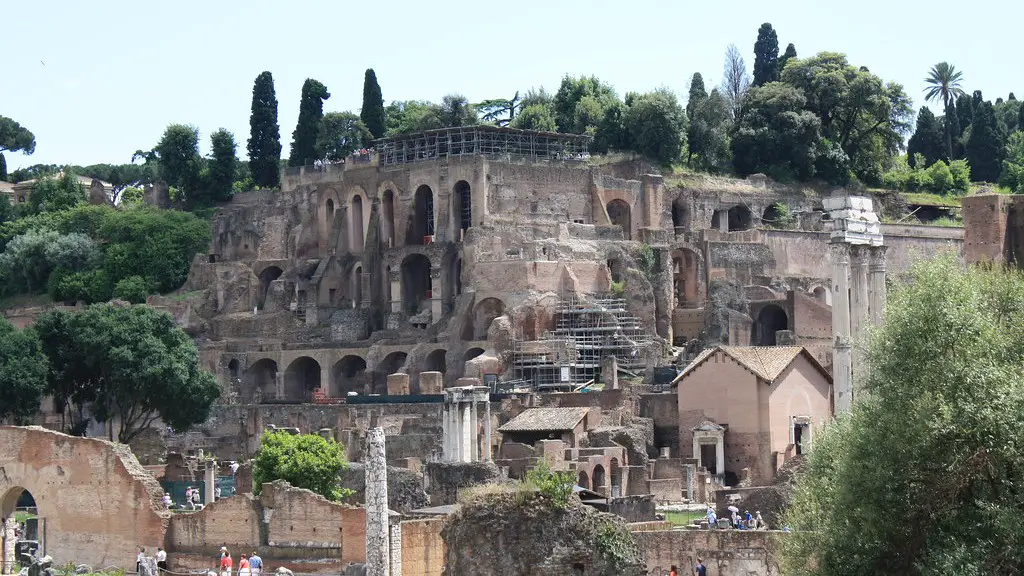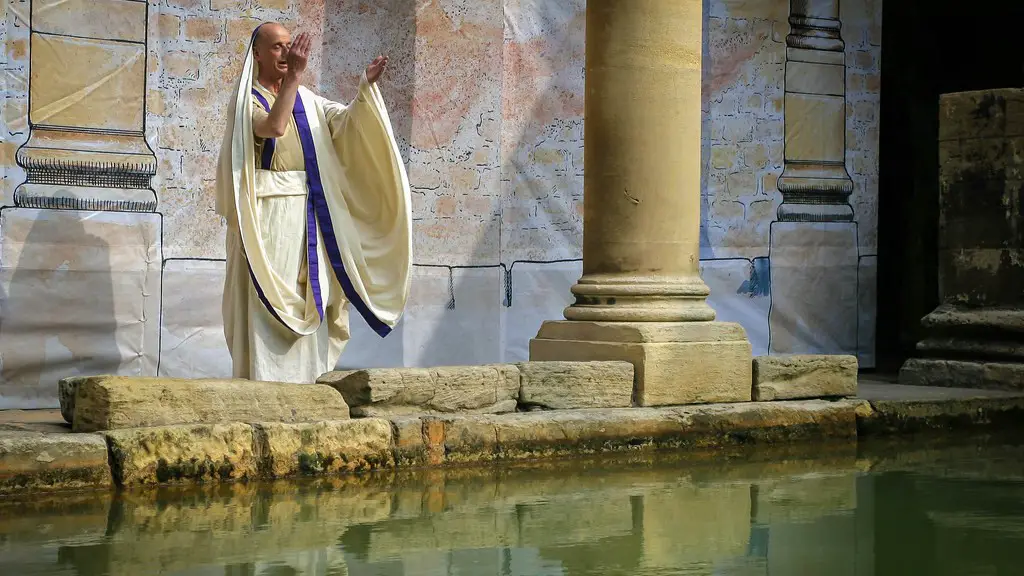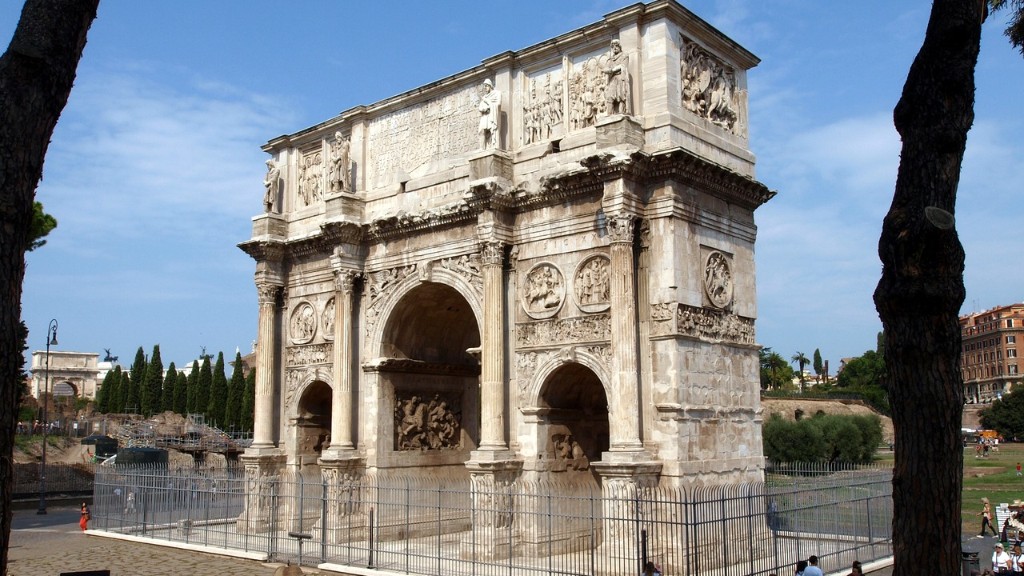Introduction
The Ancient Roman Empire was one of the most influential empires of its time, with its influence reaching to the Middle East, North Africa and even parts of Europe. Although the Emperor Constantine I declared Christianity to be the official religion of the Empire in 312 AD, much of the culture, art and engineering of the Roman Empire was already in place long before then. This begs the question, what time period did the ancient Romans live in?
The Age of Roman Republic
The earliest known stage of Roman civilization – which laid the foundations of the vast Roman Empire – was the Roman Republic. It began in 509 BC and the Roman Senate was first established in the same year. This was a period of increasing prosperity, military strength, engineering feats and social and political stability. The Republic period officially aimed to preserve the rule of law, ensure the safety of its citizens and allow Roman citizens the right to elect leaders the way they saw fit.
The Roman Republic was followed by the rise of Julius Caesar, who became consul of the Republic in 59 BC. He later declared himself Dictator for Life in 45 BC and was assassinated in 44 BC. This marked the beginning of the end of the Roman Republic, and eventually ended in 27 BC when Julius Caesar’s nephew, Octavian, became the first Emperor of the Roman Empire.
The Age of Roman Empire
The Roman Empire lasted from 27 BC to 476 AD and was one of the most powerful and influential empires in history. This period saw the spread of Roman culture and laws, the construction of aqueducts, roads and bridges, the expansion of public baths and the development of the Latin language.
During this time, the Empire also encountered periods of social and political revolution and division, as civil wars raged and certain rulers divided the power of Rome in two. This ultimately led to the East-West division of the Roman Empire and the rise of Constantinople in the eastern part of the ancient empire.
The Eastern Roman Empire officially ended in 1453 AD, when the Ottoman Turks conquered Constantinople. The Western Roman Empire, however, remained in the hands of the Roman rulers until 476 AD, when the Roman Emperor, Romulus Augustulus, abdicated in response to the pressures of the invading barbarians.
The Legacy of Ancient Rome
The Ancient Roman Empire was one of the most influential civilizations in history, and its legacy has impacted numerous countries throughout the world. From its political structures to its engineering feats, and from its art and literature to its monuments and cities, it is clear that the Ancient Romans left a lasting impact on the world. Even today, elements of Roman culture can be seen in many countries, making it an important part of our shared history.
Conclusion
Overall, the Ancient Roman Empire was one of the most influential empires of its time and its legacy has impacted countries throughout the world. From its political structures to its engineering feats and its art and literature, the Ancient Romans have left a lasting impact on all of us. With its vibrant and complex history, the ancient Romans have certainly left their mark on all of us.


